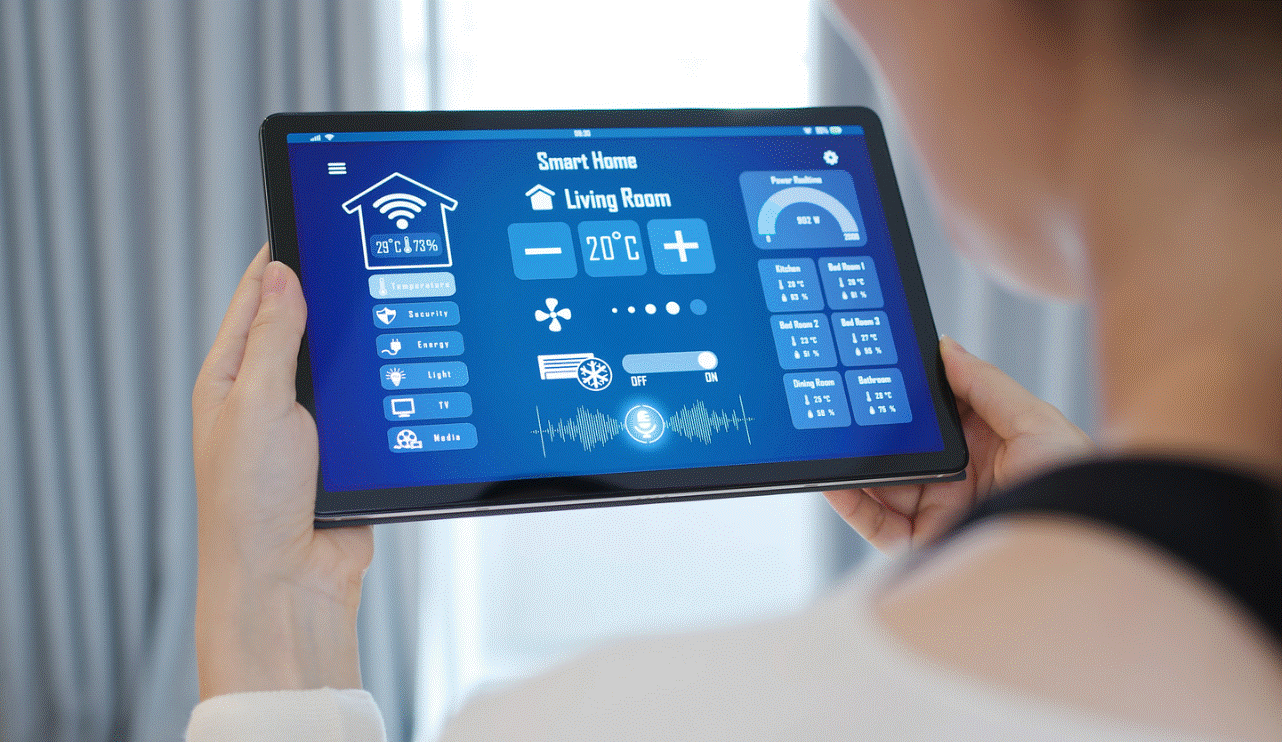What Rising Insurance Costs Mean for Home Values
In recent years, homeowners across the U.S. have been facing a growing concern: rising insurance premiums.

In the realm of technological advancements, Artificial Intelligence (AI) stands out as a transformative force reshaping various aspects of our lives. One area poised for significant change is our homes. As AI continues to evolve, its integration into household systems and appliances promises to revolutionize how we live.
Understanding AI in the Home
AI in the context of home automation refers to the ability of machines to replicate human-like intelligence to perform tasks autonomously or in response to commands. This technology enables devices to learn from data, adapt to preferences, and anticipate needs, ultimately enhancing efficiency and convenience within the home environment.
Smart Home Integration
One of the most tangible manifestations of AI in homes is the concept of smart home integration. Through interconnected devices and sensors, AI-powered systems can monitor and control various aspects of the home environment, including temperature, lighting, security, and entertainment. Smart thermostats, lighting systems, and security cameras equipped with AI algorithms can learn user patterns and adjust settings accordingly, optimizing energy usage and enhancing safety.
Personalized Experiences
AI's ability to analyze vast amounts of data enables personalized experiences tailored to individual preferences. In the homes of the future, AI-powered virtual assistants will evolve beyond simple voice commands to anticipate and fulfill the unique needs of occupants. From suggesting personalized recipes based on dietary preferences to curating entertainment options aligned with individual tastes, AI will enhance every aspect of daily life, creating seamless and intuitive experiences.
Energy Efficiency and Sustainability
With growing concerns about environmental sustainability, AI offers solutions to optimize energy usage and reduce carbon footprints in homes. Smart energy management systems equipped with AI algorithms can analyze energy consumption patterns, identify inefficiencies, and suggest adjustments to minimize waste. Additionally, AI-driven predictive maintenance can anticipate equipment failures, ensuring optimal performance and prolonging the lifespan of appliances, further contributing to sustainability efforts.
Enhanced Safety and Security
Safety and security are paramount concerns for homeowners, and AI technologies offer innovative solutions to address these needs. AI-powered surveillance systems can distinguish between ordinary activities and potential threats, providing proactive alerts and notifications to homeowners. Furthermore, facial recognition technology integrated with smart locks enhances security measures by allowing seamless access control while deterring unauthorized entry.
Health and Wellness
In the wake of recent global health crises, the importance of health and wellness in the home has gained renewed emphasis. AI-driven health monitoring devices can track vital signs, detect anomalies, and provide early warnings of potential health issues, empowering individuals to take proactive measures for their well-being. Moreover, AI-powered home automation systems can create environments conducive to relaxation and stress reduction, promoting overall mental and emotional wellness.
Challenges and Considerations
While the potential benefits of AI in homes are substantial, there are also challenges and considerations that must be addressed. Privacy concerns regarding data collection and surveillance, interoperability issues among diverse smart devices, and the potential for AI biases are among the key challenges that require careful attention and regulation to ensure responsible deployment and usage of AI technologies in homes.
As AI continues to advance, its integration into homes will redefine the way we live, introducing unprecedented levels of convenience, efficiency, and personalization. From smart energy management to enhanced safety and wellness features, the homes of the future will be intelligent, responsive, and tailored to the unique needs of occupants. By embracing AI technologies responsibly, homeowners can unlock the full potential of smart living and pave the way for a more connected and sustainable future.